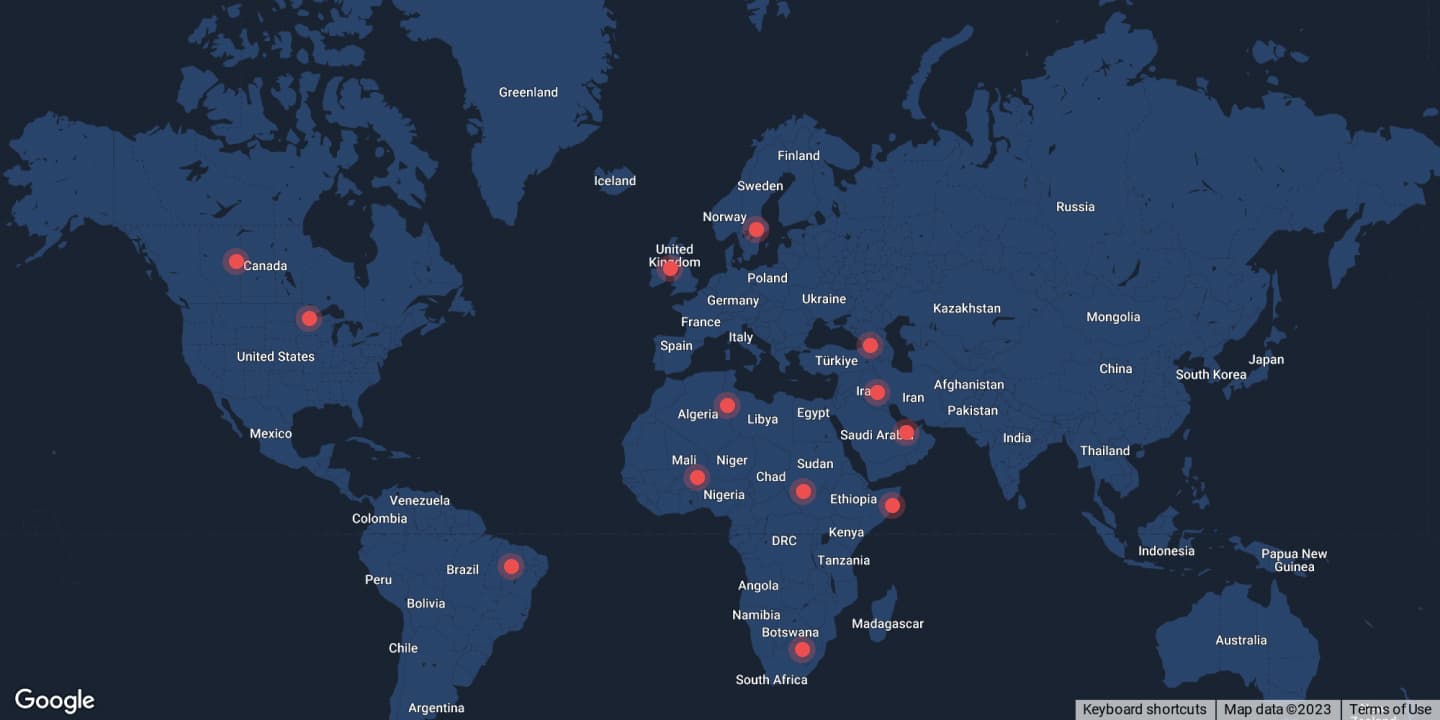The International Code of Conduct Case Map
Real Stories Illustrating The Need For Responsible Security
The International Code of Conduct Case Map provides a selection of real-life case studies which illustrate contemporary challenges and opportunities in the application of human rights and international humanitarian law by private security companies. The case map is not intended to present a comprehensive overview of all incidents involving private security companies. The cases selected, highlight the importance of adhering to the regulatory framework of human rights law and international humanitarian law, including the International Code of Conduct for Private Security Providers.
The cases present the reported facts of the case, legal analysis based on the International Code of Conduct, and potential consequences that private security companies, their clients, and investors faced as a result of the incidents. At the end of each case, there are questions intended to stimulate discussion and reflection about the causes, prevention, and consequences relevant to the case.
The Case Map is designed for a wide audience, including private security companies, their clients, researchers, regulators and the interested public. It can also be used for educational purposes, including the training of private security personnel and other professionals.
ICoCA is looking to complement the Case Map by including a selection of best-practice cases that showcase how responsible security respects human rights and international humanitarian law. Examples of best-practice that could be instructive to include in the Case Map can be suggested to: secretariat@icoca.ch
The Case Map was developed using only open, public sources, and should not be construed as reflecting the views and opinions of the International Code of Conduct Association.



The International Code of Conduct
In the section below, cases are presented according to the relevant provisions of the International Code of Conduct.
Disclaimer
The International Code of Conduct Case Map (hereinafter, The Case Map) is intended for informational and educational purposes only. In drafting the Case Map, the authors relied on open, public sources and selected cases that they felt best illustrated various potential challenges that private security companies and professionals might face. Neither the International Code of Conduct Association nor any authors can be identified with any opinions expressed in the text of or sources included in The Case Map. The authors of The Case Map recognise that all allegations referred to in The Case Map are allegations, and not necessarily fact.

